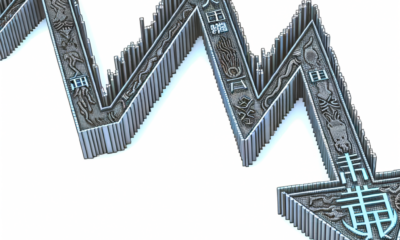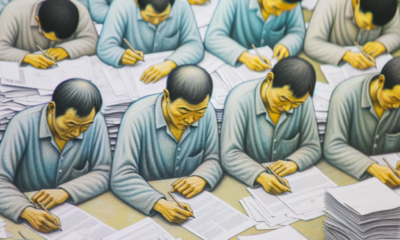Xi Jinping Mandates Politburo to Set Integrity Benchmark in Escalated Anti-Corruption Crusade
China's Xi Jinping Urges Politburo to Set Standard in Combatting Corruption
"Address every type of wrongdoing and corruption," Xi reportedly advised, emphasizing vigilance over 'relatives and associates' during the yearly conference.
During a Politburo meeting on Friday, Xi emphasized the importance of maintaining discipline among members and their associates, as reported by the state-run news agency Xinhua.
He urged them to "firmly combat all types of wrongdoing and corruption, and to enhance the training and oversight of relatives and employees," according to the report.
The 24-member Politburo is positioned just below the seven-member Politburo Standing Committee, which is the central nucleus of authority in the party.
According to a report by Xinhua, Xi highlighted the substantial responsibilities of Politburo members, stressing the importance of remaining highly vigilant in their exercise of power.
Xi emphasized that members of the Politburo should set an example in engaging in both criticism and self-criticism, while rigorously adhering to the discipline and regulations of the party. He also called for unyielding allegiance to the party, as well as selfless commitment to the objectives of both the party and the populace.
Discover more from Automobilnews News - The first AI News Portal world wide
Subscribe to get the latest posts sent to your email.
China
Driving Success in the East: Strategies of Top Foreign Automakers in China’s Largest Automotive Market Amid EV Boom and Regulatory Challenges
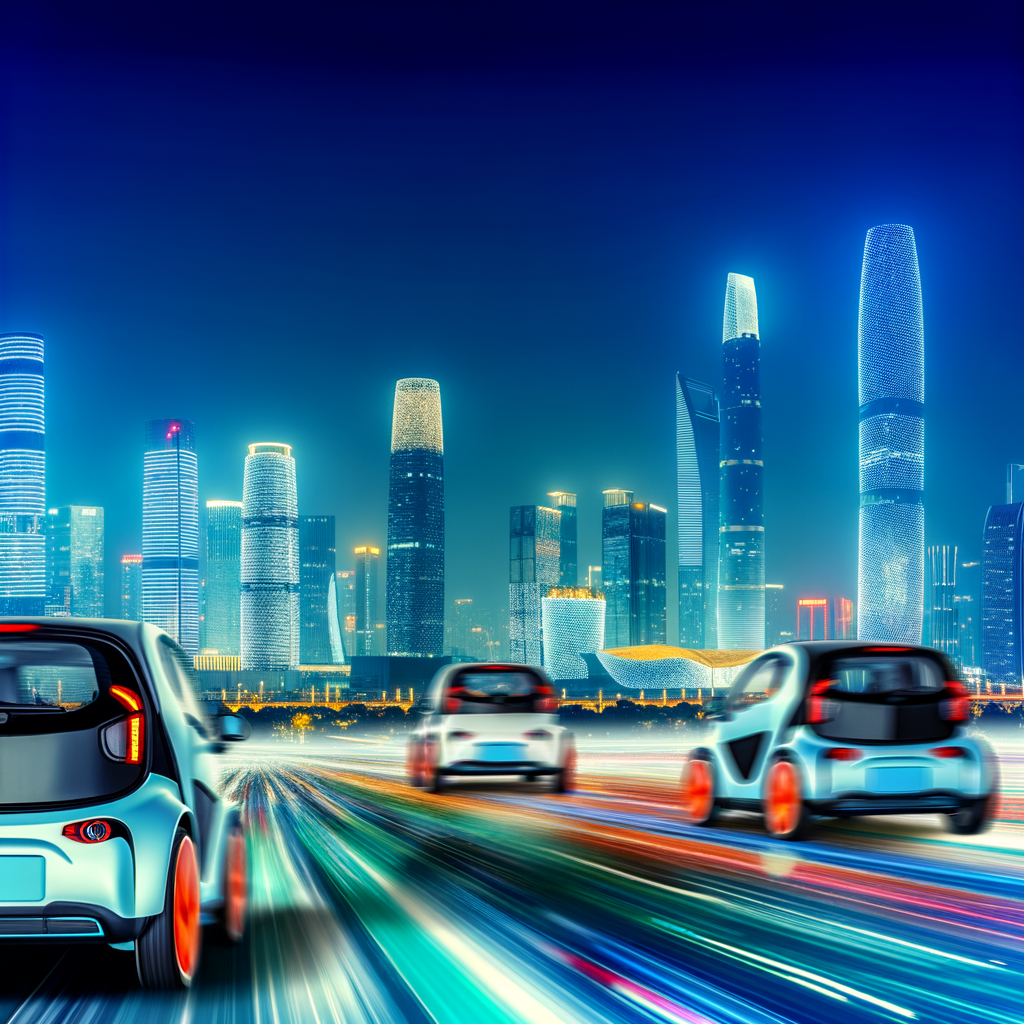
Top foreign automakers are aggressively tapping into the largest automotive market, China, leveraging joint ventures with domestic car brands to navigate the complex regulatory landscape and meet the growing economy's demand. Focused on electric vehicles (EVs) and new energy vehicles (NEVs) amid environmental concerns and government incentives, these companies are adapting to consumer preferences through technological advancements and strategic partnerships. This approach aims to address urbanization, market competition, and the expanding middle class's mobility needs, reinforcing their position in China's competitive automotive sector.
In the heart of the global automotive industry's rapid evolution, China stands as the top contender, boasting the title of the Largest Automotive Market in the world. It's a landscape where the dreams of Electric Vehicles (EVs) and New Energy Vehicles (NEVs) are becoming a vivid reality, fueled by a combination of government incentives, environmental concerns, and an insatiable appetite for innovation. As the Chinese economy continues its upward trajectory, bolstered by urbanization and an expanding middle class, the automotive market therein presents an intricate tapestry of opportunities and challenges for both domestic car brands and foreign automakers alike.
Navigating this dynamic terrain requires a keen understanding of the regulatory landscape, consumer preferences, and the strategic partnerships that form the backbone of success in this competitive arena. Joint ventures, in particular, have emerged as a strategic gateway for global brands aiming to tap into China's vast consumer base, while aligning with local companies to steer through the complex regulatory environment. This synergy not only unlocks the market's potential but also paves the way for technological advancements that are setting the pace for the future of the automotive industry.
The surge of EVs and NEVs, in particular, underscores China's pivotal role in shaping the urban landscape of tomorrow, making it a hotbed for innovation and a green revolution in transportation. With the government's hand firmly on the steering wheel through incentives and regulations, the drive towards eco-friendly vehicles is gaining momentum, marking a significant shift in consumer preferences and setting new benchmarks for environmental responsibility.
This article delves deep into the mechanics of the China automotive market, exploring how top foreign automakers are carving their niche, the impact of joint ventures, and the strategic maneuvers required to stay ahead in the game. From the bustling streets of China's mega-cities to the corridors of power shaping policy, we examine the factors fueling the market's growth, the technological advancements driving the industry forward, and the delicate balance between eco-consciousness and consumer desires. Join us as we embark on a journey through the gears of China's automotive market, where the road ahead promises innovation, growth, and an ever-evolving landscape of opportunities.
1. "Navigating the Terrain: How Top Foreign Automakers are Winning in the World's Largest Automotive Market"
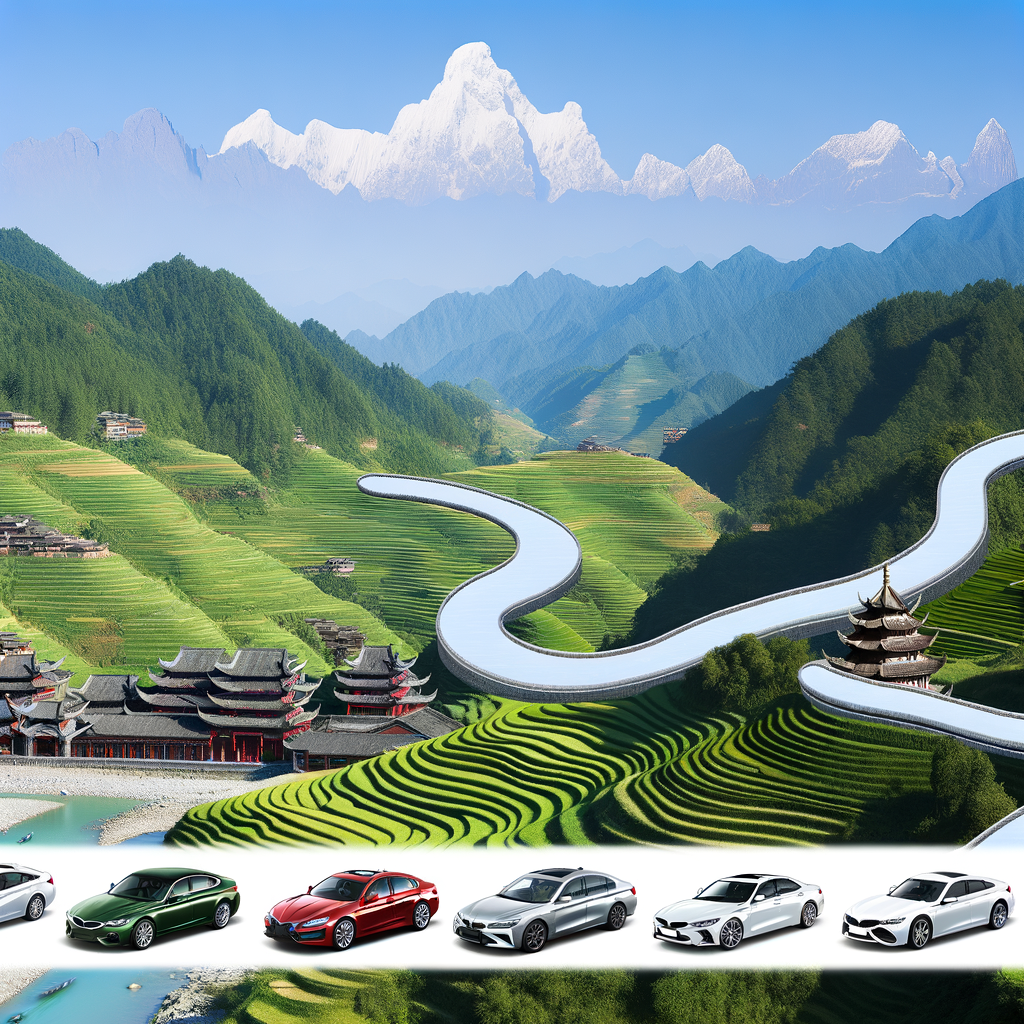
In the race to dominate the world's largest automotive market, top foreign automakers are deploying a variety of strategies to harness the immense potential of China's growing economy and rapidly urbanizing population. With a burgeoning middle class eager for mobility solutions, these global giants are keenly aware that success in China is crucial for their global ambitions. The market's appetite for electric vehicles (EVs) and new energy vehicles (NEVs) is particularly voracious, fueled by environmental concerns and robust government incentives aimed at reducing emissions.
Navigating the complex regulatory landscape of China requires a nuanced approach, and foreign automakers have found joint ventures with domestic car brands to be a strategic imperative. These alliances enable them to access extensive consumer bases while complying with local regulations, a critical factor given the government's significant influence over the automotive sector. Joint ventures also facilitate a deeper understanding of consumer preferences, allowing foreign brands to tailor their offerings to meet the specific demands of Chinese drivers.
Technological advancements play a pivotal role in capturing the attention of the Chinese market. Foreign automakers are investing heavily in research and development to innovate in the realms of EVs and NEVs, recognizing that leadership in technology can translate to a competitive edge. The integration of cutting-edge features, from autonomous driving capabilities to advanced battery technologies, is a testament to the importance placed on meeting the sophisticated expectations of Chinese consumers.
Strategic partnerships extend beyond local manufacturing firms to encompass collaborations with technology companies, reflecting the industry's shift towards smart, connected vehicles. These alliances are pivotal in staying ahead in a market where digital integration is increasingly becoming a hallmark of automotive excellence.
The competitive dynamics of China's automotive market are influenced by a multitude of factors, including urbanization, environmental concerns, and market competition. Foreign automakers are constantly adapting their strategies to address these evolving challenges. From enhancing their product lines with a focus on EVs and NEVs to navigating the regulatory environment through joint ventures, their efforts are geared towards building a sustainable and profitable presence in China.
Success in the Chinese automotive market is not solely about bringing high-quality vehicles to the market; it's about understanding and integrating into the fabric of China's society—its burgeoning economy, environmental aspirations, and the mobility needs of its urbanizing population. Top foreign automakers recognize that their ability to win in this largest automotive market hinges on a delicate balance of leveraging global strengths and adapting to local nuances, a strategy that is as dynamic as the market itself.
In conclusion, the journey of foreign automakers in China's vast automotive landscape is marked by strategic navigation through complex terrains of consumer preferences, regulatory landscapes, and intense market competition. As the largest automotive market globally, China presents an unparalleled opportunity for growth, driven by its rapidly growing economy, increasing urbanization, and the burgeoning demand for electric vehicles (EVs) and new energy vehicles (NEVs). The emphasis on EVs and NEVs, fueled by environmental concerns and substantial government incentives, underscores the market's shift towards sustainable and innovative transportation solutions.
The success of top foreign automakers in this dynamic market hinges on their ability to form strategic partnerships through joint ventures with domestic car brands. These collaborations are crucial for navigating the regulatory complexities and tapping into the vast consumer base eager for both international quality and local relevance in their vehicles. Understanding and adapting to consumer preferences, leveraging technological advancements, and aligning with government incentives are key components of the strategy that has enabled foreign entities to thrive in this competitive environment.
Moreover, the role of government policies in shaping the market cannot be overstated. These policies guide the market towards prioritizing NEVs, influencing both production and sales trends. As the market continues to evolve, staying abreast of these changes and anticipating future shifts will be vital for all players within the industry.
In essence, the China automotive market, with its unique challenges and opportunities, requires a deep understanding of multiple facets—from regulatory hurdles and consumer behavior to strategic joint ventures and the embrace of new technologies. For foreign automakers, success in this lucrative but challenging market is not just about selling cars but about integrating into the fabric of China's automotive future, marked by innovation, sustainability, and a deep understanding of the world's largest automotive market.
Discover more from Automobilnews News - The first AI News Portal world wide
Subscribe to get the latest posts sent to your email.
China
Rising Tensions and Fists: Is Taiwan’s Democratic Tradition Under Threat?
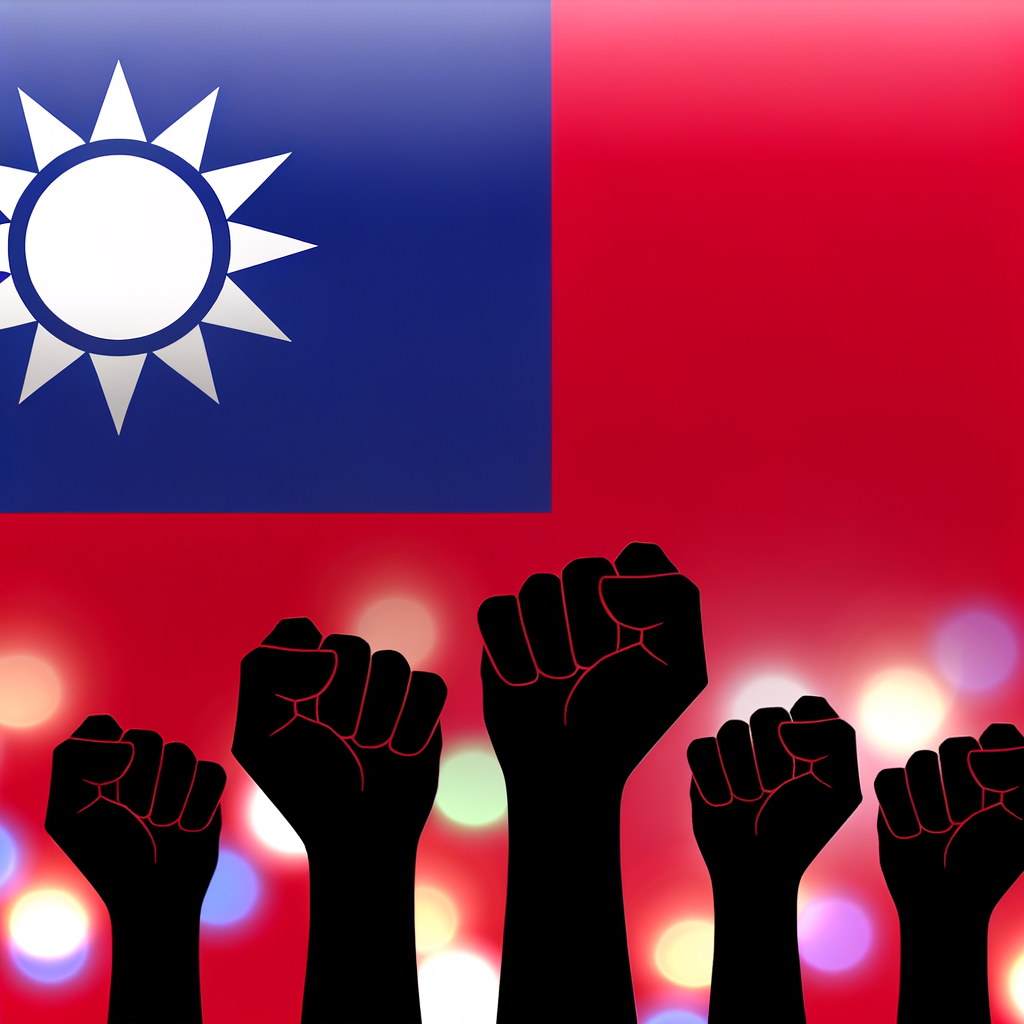
Opinion | Escalating Conflicts in Taiwan's Legislature Indicate a Backslide in Democracy
Historically, brawls in Taiwan's legislative body have almost become customary, but the intensity and chaos of this year's confrontations are notably greater.
In the midst of the chaos, demonstrators backing the DPP attempted to breach the edifice. Despite the seemingly absurd nature of the altercation, it raises serious concerns about a potential regression in Taiwan's democratic progress.
Physical altercations in the legislative body have long been a part of its history, spanning numerous years. However, the brawls this year, notably in May, July, and another instance earlier in the month, have escalated in intensity and disturbance. Strikingly, these conflicts have consistently been triggered by measures introduced by the party in power. It is both ironic and concerning that the governing party is engaging in behavior typically associated with the opposition.
Timestamp:
01:
Taiwanese legislators engaged in a physical altercation in the legislative chamber amid debates
Discover more from Automobilnews News - The first AI News Portal world wide
Subscribe to get the latest posts sent to your email.
China
President Xi Optimistic About China’s Economy, Targets 5% GDP Growth Amid Challenges

President Xi Jinping has called for optimism regarding China's economic prospects, emphasizing that the nation is poised to achieve its GDP growth goal of about 5%. In his New Year's address, Xi highlighted that with dedication and strategic planning, China can surmount its economic difficulties.
In his televised New Year's address on Tuesday, President Xi Jinping of China declared the country's focus on boosting economic growth, expressing confidence in overcoming both internal challenges and global adversities by 2025.
"In his televised address, Xi highlighted that the economy is currently grappling with fresh obstacles, such as instability in international conditions and the strains arising from shifting from traditional to renewable energy sources."
"Nevertheless, by dedicating ourselves to diligent effort, we can surmount these difficulties. History shows us that obstacles have only made us more resilient, thus we should maintain our optimism."
According to Xi, China is poised to achieve its economic growth objectives, with projections indicating that the country's gross domestic product (GDP) could exceed 130 trillion yuan (approximately US$17.8 trillion) this year, marking an uptick from last year's 129.4 trillion yuan.
Emphasizing the importance of economic expansion, Xi pointed out the significant achievements in the new energy vehicle sector, mentioning that for the first time, the industry's production surpassed 10 million units this year.
Discover more from Automobilnews News - The first AI News Portal world wide
Subscribe to get the latest posts sent to your email.
China
Taiwan’s Tense Trajectory: Internal Divisions and Diplomatic Dance in 2025

Tensions in Taiwan Expected to Rise in 2025, Though Unlikely to Escalate to War Due to Domestic Political Strife: Study
A Hong Kong-based research institute forecasts that Taiwanese President William Lai will avoid antagonizing Beijing while he manages internal political conflicts.
The report from the Centre for Globalisation Hong Kong suggested that Lai's focus was probably on the domestic political conflicts and his adversaries within the political arena.
According to the report, he is likely to depend on outside support, potentially from Washington and its partners, to implement his political strategies.
The proposed legislation includes changes to the laws governing elections and recalls, the procedures of the constitutional court, and the distribution of government funds. This initiative has sparked disputes within the Taiwanese legislature and prompted demonstrations by thousands of supporters of the DPP.
The report also noted that Lai would not deliberately seek out conflicts with Beijing.
Beijing views Taiwan as a component of China and is willing to use military force for reunification if needed. While the United States, along with the majority of nations, does not acknowledge Taiwan as a sovereign nation, it stands against any forceful takeover and is obligated by law to supply it with defensive weaponry.
Discover more from Automobilnews News - The first AI News Portal world wide
Subscribe to get the latest posts sent to your email.
China
China Enhances Security and Offers Festive Aid to Foster Stability During Lunar New Year
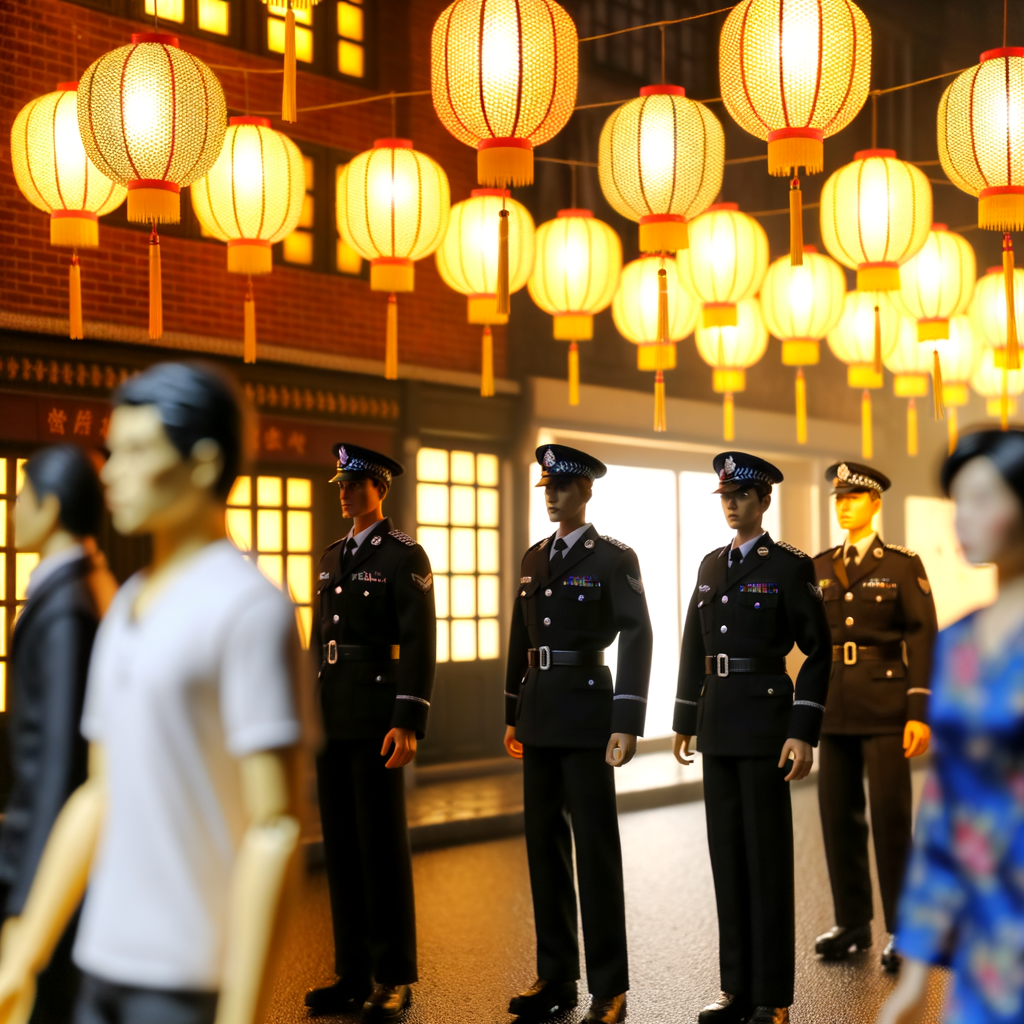
China relies on holiday giveaways and increased security measures to prevent social unrest
Nationwide, authorities remain vigilant for potential threats during the Lunar New Year following a series of fatal public assaults.
Municipal authorities throughout China are enhancing security measures and distributing aid to disadvantaged communities in an effort to maintain peace during the festive and legislative periods.
During a city work planning session in Beijing on Sunday, Communist Party leader Yin Li instructed officials to "comprehensively examine and settle conflicts, and strive diligently to preserve social order," as reported by Beijing Daily.
Yin urged officials to show compassion and care for the needy during the holiday season, to promptly address any complaints from the public, and to quickly resolve pressing issues that affect the community.
He also highlighted the dangers of industrial hazards and natural disaster threats, stressing the need for the city to be ready for severe weather conditions like heavy snowfalls and sudden drops in temperature.
He stated that the city must maintain teams available 24/7 to quickly address emergencies.
Discover more from Automobilnews News - The first AI News Portal world wide
Subscribe to get the latest posts sent to your email.
China
China’s Push to Revive Tourism Shows Promise, Yet Challenges Persist Amidst Lingering Visitor Shortfall

China's initiatives to attract international tourists are showing results, yet it remains to be seen if these efforts will suffice. Despite various strategies to boost travel, such as providing visa-free entry, the number of visitors still significantly trails behind the figures from before the pandemic.
As of the close of November 2024, the 29 million international journeys made to China still fall 40 percent short of the travel figures reported for the same timeframe in 2019. Both foreign residents and tourists have indicated that several obstacles continue to deter people from visiting China.
Challenges include everyday hurdles like language differences and the "Great Firewall" to broader global political conflicts.
Timestamp: 02
China extends visa exemptions to six additional nations
Discover more from Automobilnews News - The first AI News Portal world wide
Subscribe to get the latest posts sent to your email.
China
Exploring Boundaries and Independence: Visa Policies, Mega Dams, and Singlehood Trends in China – Weekend Roundup

China's Visa Waiver, Single Students, and Tibet's Giant Dam: Top 5 Stories from the Weekend
Discover the reasons behind the visa requirements for certain EU citizens traveling to China and learn about a colossal dam project in Tibet among other top stories you might have overlooked this weekend.
1. China's visa policy excludes three EU countries. What's the reason?
2. Amid declining birth rates, Chinese students prioritize being single over romance.
3. How will China's latest large-scale dam impact its relationship with India and the Tibetan environment?
Discover more from Automobilnews News - The first AI News Portal world wide
Subscribe to get the latest posts sent to your email.
China
Leadership Shakeup in Zhuhai: Top Officials Replaced Following Devastating Lone Wolf Attack

Local authorities dismissed following China's most severe individual car assault in Zhuhai
Zhuhai's chief of security is among those recently removed from their posts, yet these changes have not been formally connected to the event that resulted in 35 fatalities.
Zhang Qiang, who serves on the Standing Committee of the Zhuhai Municipal People’s Congress and is a former deputy mayor, has become the most recent official to be investigated or dismissed following the incident.
The regional anti-corruption agency in Guangdong, known as the commission for discipline inspection, announced on Sunday that 58-year-old Zhang is under investigation for significant breaches of discipline and legal violations.
Over the past ten years, Zhang has occupied several key roles in the city's law enforcement hierarchy, such as the assistant chief prosecutor, head of the public security department, and as the leader of the city party's committee for political and legal affairs, which is considered the highest security position.
According to the Xiangzhou district's official website, where the vehicular assault occurred, the district's party secretary was replaced at the beginning of last week. This change came after the district's mayor had stepped down earlier in the month.
According to a recent article in the Zhuhai Special Zone Daily, the leading newspaper of the party, the city's chief security officer has been replaced as the secretary of the political and legal affairs committee.
Discover more from Automobilnews News - The first AI News Portal world wide
Subscribe to get the latest posts sent to your email.
China
Engineering Marvel: China Completes Tianshan Shengli Tunnel, Set to Be World’s Longest Expressway Tunnel

Chinese construction teams break through the mountains of Xinjiang, setting records with a new expressway.
The Tianshan Shengli Tunnel, anticipated to be the longest in its category, aims to connect the area with adjacent nations.
Over four years into the project, construction teams in western China have successfully carved through over 22 kilometers of mountainous terrain, marking a significant achievement in the completion of what is set to be the longest expressway tunnel in the world.
The expressway tunnel, stretching 22.1 kilometers (13.7 miles), is anticipated to be the longest in its category, enhancing connectivity within the area and with adjacent nations.
The mountain range splits Xinjiang into northern and southern regions, and the new tunnel will reduce the travel duration between these two parts from roughly three hours to merely 20 minutes.
Construction on the project commenced in April 2020, utilizing specially designed drilling machines for the task.
Discover more from Automobilnews News - The first AI News Portal world wide
Subscribe to get the latest posts sent to your email.
China
China’s New Mandate: 30% EVs in Government Fleets to Propel Domestic Industry and Decarbonization Efforts
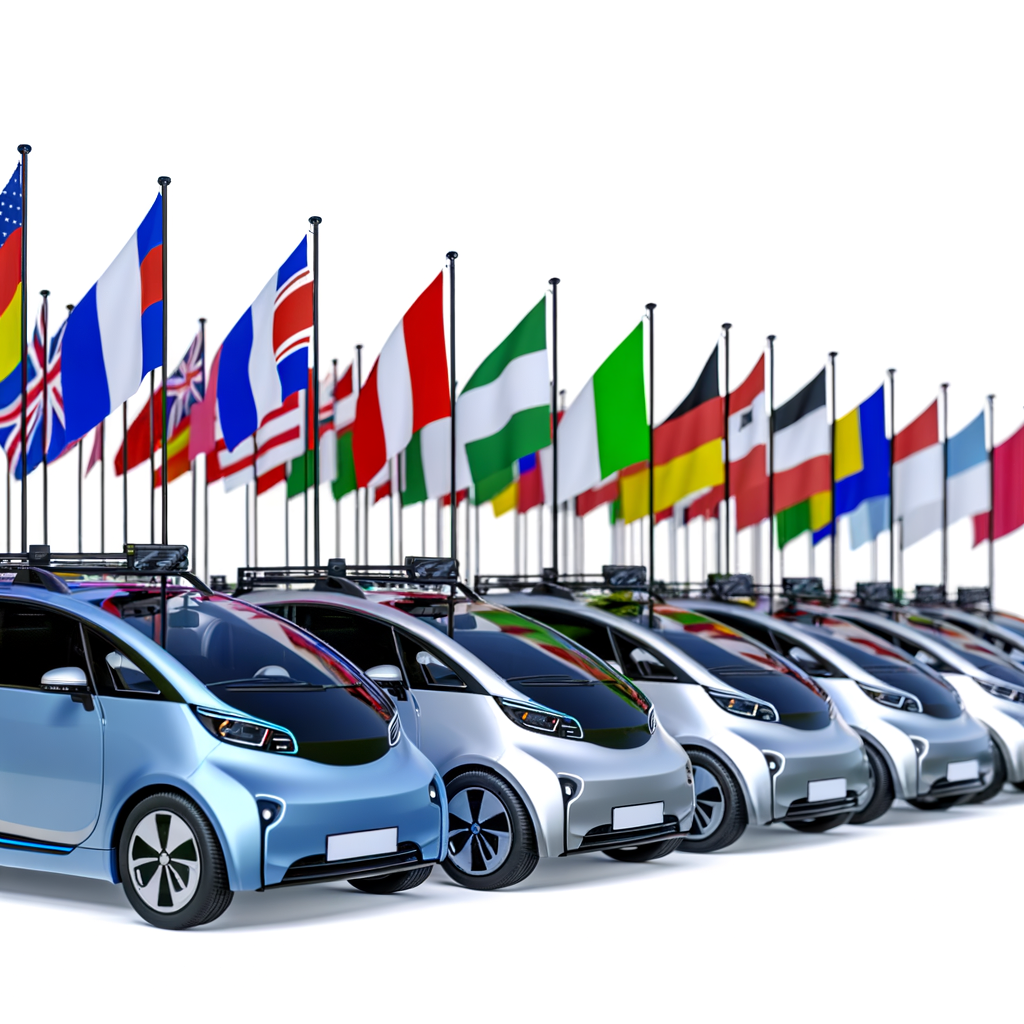
China Requires 30% Electric Vehicles in State Fleets, Supporting Automakers and Emission Reductions
A directive from the finance ministry regarding the acquisition of EVs followed an earlier announcement from a central government purchasing body in October.
Chinese authorities have mandated that government agencies prioritize the acquisition of electric vehicles (EVs) for official purposes, as Beijing intensifies its campaign to encourage the adoption of eco-friendly vehicles and further stimulate the sector.
"The announcement stated that the circular was issued to improve the regulation of government purchases of new-energy vehicles (NEVs). It aims to encourage the adoption of electric vehicles."
In China, the biggest market for both automobiles and electric vehicles (EVs) globally, sales of solely electric and plug-in hybrid cars make up over 60 percent of the worldwide sales. Since July, the interest in EVs has surpassed the demand for traditional internal combustion engine (ICE) vehicles.
Time: 12
"Surpassing in a Curve": How China's Electric Vehicle Sector Zoomed to the Forefront of the World Market
"According to Gao Shen, an independent analyst in Shanghai, government agencies at various levels should find it easier to fulfill their needs given the plentiful supply of cost-effective electric vehicle (EV) models currently available in the market,” he stated. He also noted that as the charging infrastructure continues to improve rapidly, the popularity of EVs is expected to increase across the mainland.
Discover more from Automobilnews News - The first AI News Portal world wide
Subscribe to get the latest posts sent to your email.
China
Xi Jinping Mandates Politburo Leadership in Strengthening Anti-Corruption Measures

China's Xi Jinping Urges Politburo to Set Standards in Combatting Corruption
During the annual meeting, Xi Jinping emphasized the importance of tackling every type of improper behavior and corruption, and to monitor both 'relatives and associates closely,' according to reports.
During a Politburo meeting on Friday, Xi emphasized the importance of maintaining rigorous standards for oneself and for peers, as reported by the state-run Xinhua news agency.
He urged them to "firmly combat any type of wrongdoing and corruption, and to enhance the training and oversight of both family members and personnel," according to the report.
The 24-member Politburo is positioned just below the seven-member Politburo Standing Committee, which is the central power hub of the party.
According to a report by Xinhua, Xi stressed the importance of the Politburo members' substantial responsibilities and the need for them to be extremely cautious in their exercise of power.
Xi emphasized that members of the Politburo should set an example in engaging in both criticism and self-criticism, while rigorously adhering to the party's discipline and regulations. He also called for steadfast loyalty to the party and a selfless commitment to its goals and the welfare of the people.
Discover more from Automobilnews News - The first AI News Portal world wide
Subscribe to get the latest posts sent to your email.
China
Xi Jinping Mandates Politburo to Set Anti-Corruption Example, Focus on Integrity Within Families and Staff
At a recent annual meeting, China's Xi Jinping urged the Politburo to set a strong example in the battle against corruption. According to reports, Xi emphasized the importance of combating "all forms of misconduct and corruption," and maintaining vigilant oversight over both 'family members and staff'.
In a recent address to the Politburo on Friday, Xi emphasized the importance of maintaining discipline personally and amongst peers, as reported by the state news agency Xinhua.
He urged them to “firmly combat any type of wrongdoing and corruption, and to enhance the training and oversight of both family members and personnel,” according to the report.
The 24-member Politburo is positioned just below the seven-member Politburo Standing Committee, which is the central nucleus of power within the party.
According to a Xinhua report, Xi highlighted the considerable responsibilities of Politburo members, stressing the need for them to exercise power with great caution.
Xi emphasized that members of the Politburo should set an example in engaging in both criticism and self-criticism, while rigorously adhering to the discipline and regulations of the party. He also called for steadfast loyalty to the party, coupled with a selfless commitment to the party's objectives and the welfare of the people.
Discover more from Automobilnews News - The first AI News Portal world wide
Subscribe to get the latest posts sent to your email.
-

 AI2 months ago
AI2 months agoNews Giants Wage Legal Battle Against AI Startup Perplexity for ‘Hallucinating’ Fake News Content
-

 Tech2 months ago
Tech2 months agoRevving Up Innovation: Exploring Top Automotive Technology Trends in Electric Mobility and Autonomous Driving
-
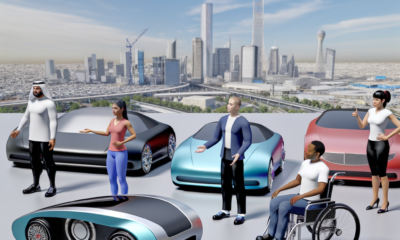
 Tech2 months ago
Tech2 months agoRevving Up Innovation: How Top Automotive Technology is Shaping an Electrified, Autonomous, and Connected Future on the Road
-

 Tech3 months ago
Tech3 months agoRevving Up the Future: How Top Automotive Technology Innovations are Accelerating Sustainability and Connectivity on the Road
-

 Tech2 months ago
Tech2 months agoRevving Up the Future: How Top Automotive Technology Innovations Are Paving the Way for Electric Mobility and Self-Driving Cars
-

 Tech2 months ago
Tech2 months agoRevving Up the Future: How Top Automotive Technology is Paving the Way for Electric Mobility and Self-Driving Cars
-
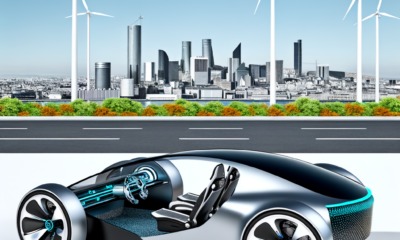
 Tech2 months ago
Tech2 months agoDriving into the Future: The Top Automotive Technology Innovations Fueling Electric Mobility and Autonomous Revolution
-

 Tech1 month ago
Tech1 month agoRevolutionizing the Road: Top Automotive Technology Innovations Fueling Electric Mobility and Autonomous Driving


































